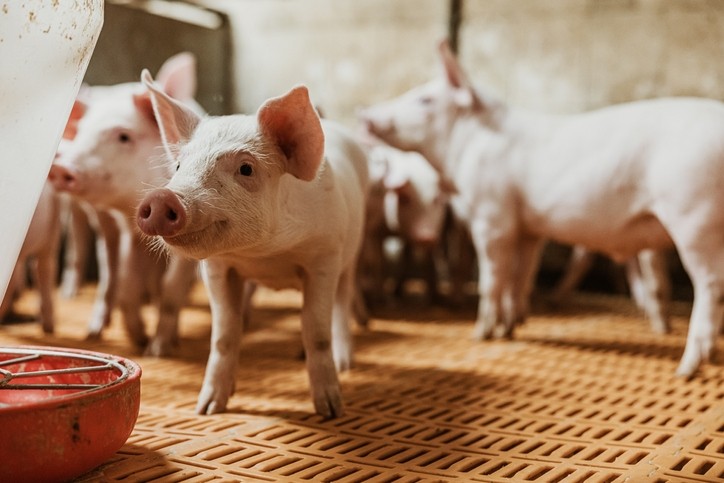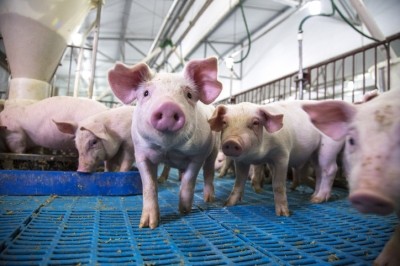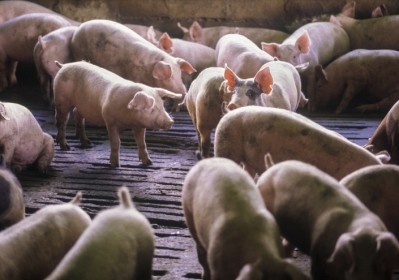Review: ‘We need to completely revisit the feeding of newly weaned piglets’

Newly weaned pigs typically eat around maintenance during the first week after weaning but gain weight because of edema, not protein or fat tissue accretion, finds their review in the journal animal.
The edema is caused by refeeding syndrome, which results from fasting and erratic intake of a high glycemic feed - a diet containing rapidly digestible carbohydrates.
“We have developed weaning practices that may not be healthy for the piglet. Typically, pigs are fed diets containing roughly 40% starch, some of which is gelatinized and, therefore, presumably highly digestible. These diets commonly include some sugar to improve palatability.
"The glycemic load of such diets is very high, especially when consumed at a high rate and erratically as done by piglets immediately after weaning," said the authors, who are based at North Carolina State University, USA, at Trouw Nutrition, and at Wageningen University & Research, in the Netherlands, and at the University of Alberta, in Canada.
The nursery diet formulation should be reconsidered given these findings, they stressed.
“Shortly after weaning, piglets generally eat dry feed poorly; but nevertheless, a phenomenal gain-to-feed ratio is achieved as they gain about as much weight as they eat (150–200 g/d).
“The high gain-to-feed ratio, though, cannot be explained by their nutrient intake or nutrient repartitioning. Analyses based on tissue composition and bio-electrical impedance data showed that newly weaned piglets lose fat, maintain protein, and gain large amounts of water because of edema. This edema, which may well contribute up to one kg of body weight, seems to be triggered by refeeding syndrome.”
Refeeding syndrome
Refeeding syndrome in adult humans occurs when subjects fast for weeks, which results in downshifts in metabolic activity and concomitant shedding of phosphate, magnesium, and potassium in urine, explained the authors. If food is abruptly reintroduced, thus, resulting in strong insulin spikes, metabolism is triggered but hampered by a lack of those nutrients, and thiamine, causing hypophosphatemia, metabolic stress, and edema.
In piglets, they maintained that the same process appears to happen immediately after weaning but in hours rather than weeks, possibly linked to their high metabolic rate. “Refeeding syndrome can be lethal in humans but does not appear to be directly lethal in piglets."
'Interpret performance data with caution'
Performance data for newly weaned pigs should be carefully analysed, warned the authors.
“A practical ramification of weaning-induced edema is that growth and gain-to-feed ratio data immediately after weaning should be interpreted with caution.”
And nursery diets should be formulated so they do not trigger significant insulin release, while high lysine levels are not needed as the gain is not based on protein accretion, said the reviewers.
“An error in the composition of our piglet diets is that they are aimed at protein gain after weaning - amino acid ratios for protein gain - while in the first week after weaning, protein gain is likely low, if at all present. Consequently, 1.2–1.4% digestible lysine is arguably not what pigs need at this stage of life. However, this does not mean that the piglets do not need protein. Upon weaning the piglet experiences both metabolic and health stress for which amino acids such as cysteine, histidine, and tryptophan are required.”
It is universally accepted that weaning compromises gut health in piglets but the authors also pointed out that weaning affects systemic and metabolic health.
"Newly weaned piglets seem to tolerate high levels of insulin poorly, likely due to a shortage of phosphate, which leads to the development of edema through refeeding syndrome. This edema, rather than actual tissue growth, explains the rapid weight gain of the newly weaned pig," they concluded.
The review was supported by Trouw Nutrition.
Source: animal
Title: Review: The amazing gain-to-feed ratio of newly weaned piglets: sign of efficiency or deficiency?
Authors: T van Kempen, TG Hulshof, W JJ Gerrits, R T Zijlstra


















